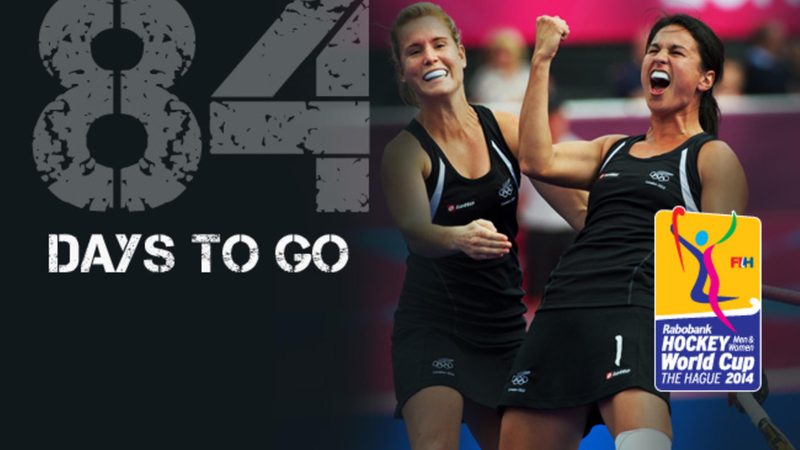
Kate Richardson-Walsh, the Great Britain team captain said recently that being a sports personality was about more than just playing the sport, it was about being a role model to women and girls. She was speaking at a parliamentary session in the UK about the importance of sport in allowing girls and women to live healthier lives and have higher levels of confidence and self esteem.
With obesity and inactivity levels among women and girls rising, the importance of getting involved in sport has never been greater. Yet, despite all the evidence that participating in team sports is good for you, only a small percentage of females regularly play sport.
We spoke to Australia's Georgie Parker and Kayla Sharland, the New Zealand midfielder, about how they got involved in sport, why hockey is so important to them and how more girls and women can be encouraged to get active.
Georgie Parker: "I grew up in a country town called Berri, in South Australia, which is a really big sporting region. I played a bit of everything growing up, but in winter there was a choice of hockey or netball. I tried netball as my sisters played it, but really didn't like it very much, so hockey was next in line."
Kayla Sharland: "I started playing at school. Playing team sports from a young age helps you make so many life-long friends. Then there are the other qualities such as social interaction, confidence, higher self esteem and the sheer enjoyment of playing with your peers."
GP: "It also gives you a great deal of self respect and respect for others, and the ability to compromise. Girls who are shy are able to feel valued among their peer group"
With girls six times more likely to quit sport than boys, why do the two internationals think so many females drop out of team sports?
KS: "I think many girls will stop playing as they become aware of other interests, both academic and social. Sometimes the cost of playing and the distance they need to travel to games can impact on their decisions."
GP: "I think it's pretty sad that so many girls stop playing sports, but I think there are three main reasons: time wise, it is hard to fit in the demands of training and playing with busy lifestyles; it can be daunting, especially if you haven't played for a while or you don't know anyone in the team – that can be quite an uncomfortable experience; and girls and women simply do not receive the same positive reinforcement about their sports participation, unlike men who are all over the media."
KS: "To overcome the problem we need to see more women role models in the community and visiting schools. There also needs to be a rethink on accessibility for women.
What qualities has sport given our two superstars?
GP: First and foremost, sport has gifted me a healthy and balanced lifestyle. Secondly, life long friends from playing the sport that I love. Not just the girls in my Hockeyroos team, but even the players and club members who helped me and supported me through the years as a junior and club player. I have also learnt many life skills from sport such as team work, respect and the drive to succeed.
KS: "Great friends all over the world, leadership skills, dealing with adversity, communication skills, passion and the drive to succeed.
Follow Kate, Kayla and Georgie on Twitter @katewalsh11 @kaylasharland1 @georgieparker






















